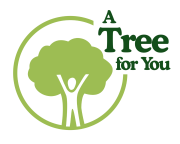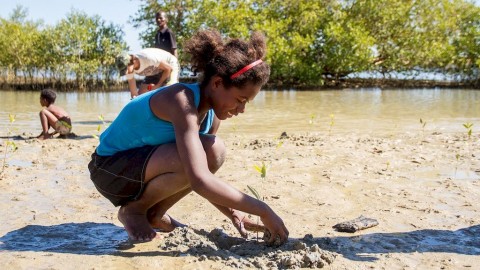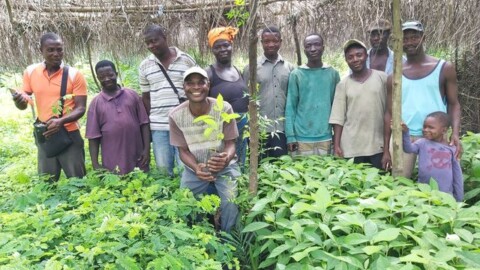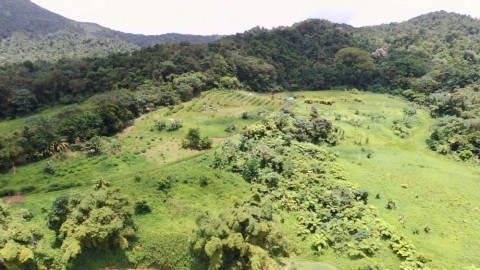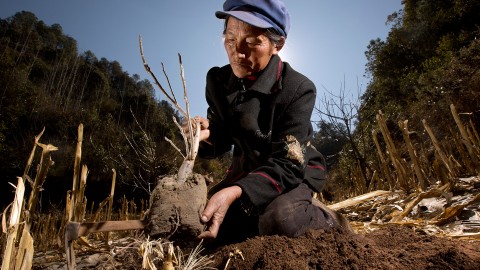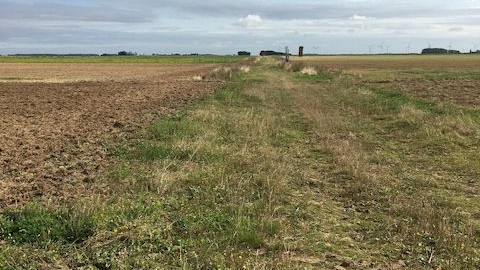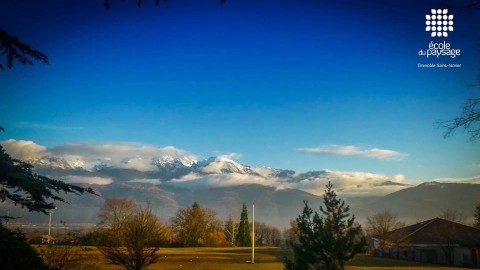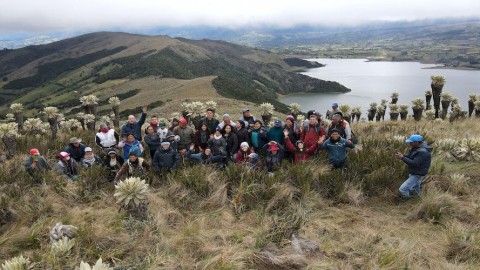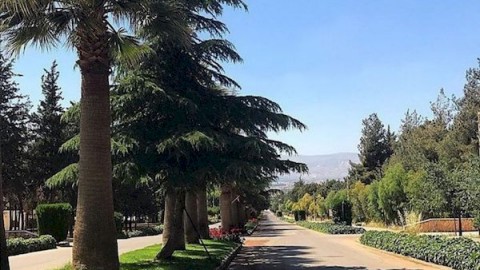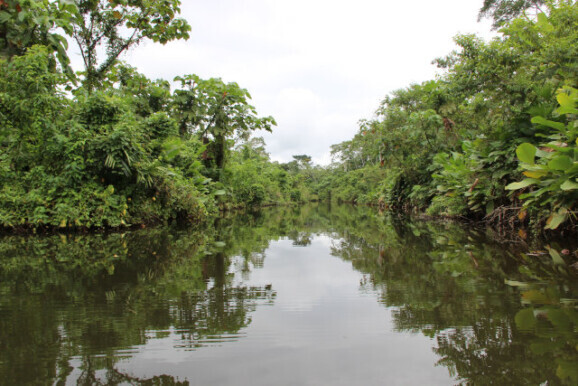
Background & challenges
The way of life of the Kichwas people in the Ecuadorian Amazon has evolved over the centuries from nomadism, based on hunting and gathering, to the ‘chacra’ agroforestry system. The chacra meets every need the year round with an extremely diverse range of cultivated species.
But the 20th century has led to traditional agroforestry being gradually replaced by monocultures or short-cycle crop associations. These major changes in the farming system have resulted in overexploitation of natural resources, which in turn has caused deforestation, erosion, soil impoverishment and a decline in biodiversity.
Nevertheless, the traditional chacra is still present in the region. The project depends on this ancestral know-how to reorientate rent-based farms towards sustainable agroforestry.
The objective of the project is therefore to install 13,000 trees whose species are in decline on the plots worked by Kichwa farmers; action that should lead to several economic and ecological improvements.
Indeed, for an orchard planted with fruit trees, revenue increases by over 30% after three years and 100% after five years. In addition, by planting timber species, a tree will earn the farmer around $200 when felled two decades after planting.
From an ecological point of view, this agroforestry project contributes in the following ways:
- protection of water resources; enhancing biodiversity by regeneration an ecosystem and preserving it by introducing rare species; boosting the resilience of the forest plot by planting many different species;
- tackling global warming by capturing carbon (greenhouse gas emissions, GHG are absorbed);
- tackling soil erosion and leaching by stabilising and enriching the soil with organic matter. Some species of timber trees are legumes (e.g. Cedrelinga cateniformis) and help increase the nitrogen content of the soil.
This project has been supported by A Tree for You donors since 2019 and was audited by the experts of the A Tree for You selection committee in December 2022. This audit highlighted, among other things, the importance of continuing to support the local NGO Ishpingo’s initiative on the field.
Project type

Forest and agroforestery
Beneficiaries

80 families in the region
Number of trees

13,000 trees will remain for several years after planting a total of 16,000
Species planted

Timber forest trees and fruit trees, with a wide variety of 10 to 20 species per plot and the reintroduction of local endangered species. Complete list below
Partner

NGO Ishpingo
Endangered timber species in the area:
Ahuano/American mahogany (Swietenia macrophylla), arenillo (Erisma uncinatum), balsamo (Myroxylon balsamu), canelo amarillo (Ocotea javitensis) canelo anis (Nectandra sp.), caoba betiada (Plathymiscium estipulare), cedrillo (Cabralea canjerana), chuncho/tornillo (Cedrelinga cateniformis), guayacan (Tabebuia guyanensis), huambula (Minquartia guianensis), mindal (Simira sp.), pechiche (Vitex cymosa), pinga (Aspidosperma sp.), canelo café (Ocotea sp) et chiriguayusa (Rouwolfia sp).
Other lumber species:
Avio (Pouteria sp.), manzana colorada (Guarea guidonia), peine de mono (Apeiba membranacea).
Species of fruit trees in the region:
Achanso (Caryodendron orinocense), araza (Eugenia stipitata), borojo (Borojoa patinoi), chicle muyu (Lacmella oblongata), cherimolier (Rollinia mucosa), guanabana (Annona muricata), guayabilla (Eugenia victoriana), mulchi (Eugenia subterminalis), pungara (Garcinia madruno), sapote (Matisia cordata).
Exotic species of fruit trees from Asia:
Achiotillo/ramboutan (Nephelium lappaceum), citron galet (Citrus aurantifolia), manzana de agua (Syzygium aqueum), mandarine (Citrus reticulata), menteng (Baccaurea dulcis), orange (Citrus sinensis), salak café (Salacca edulis), salak rouge (Salacca affinis).
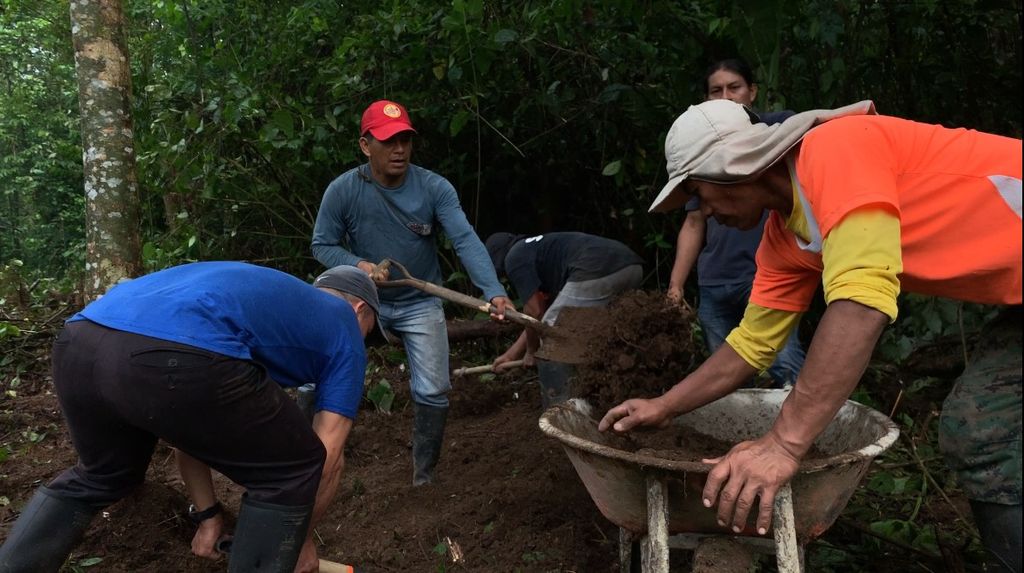
Works timeline
- January – February 2024: development of organic fertilizers
- January – June 2024: preparation of seed bags
- February – July 2024: purchase and harvest of seeds or seedlings
- March – July 2024: bagging of seedlings
- March – October 2024: nursery maintenance
- August – December 2024: transport of young trees to farmers and tree planting
- December 2024 – August 2027: monitoring and maintenance of plots of land at farmers’ homes (2 to 3 visits per year and per farmer) and training of farmers (on site at each visit)
Planting partner
Budget
The total budget to be collected is €71,500. The price for planting a lasting tree is €5,50 and breaks down as follows:
- 93% allocated to the planting project:
- Nursery: €1
- Planting: €0.75
- Training: €0.75
- Technical follow-up: €1
- Project follow-up and reporting from Ishpingo: €0.18
- Structural costs of Ishpingo : €0.19
- A Tree for You collection, monitoring and communication costs shared across all projects (12,31%): €0.67
- and 7% (€0.39) to support the structural costs of A Tree for You.
They donated to this project :

